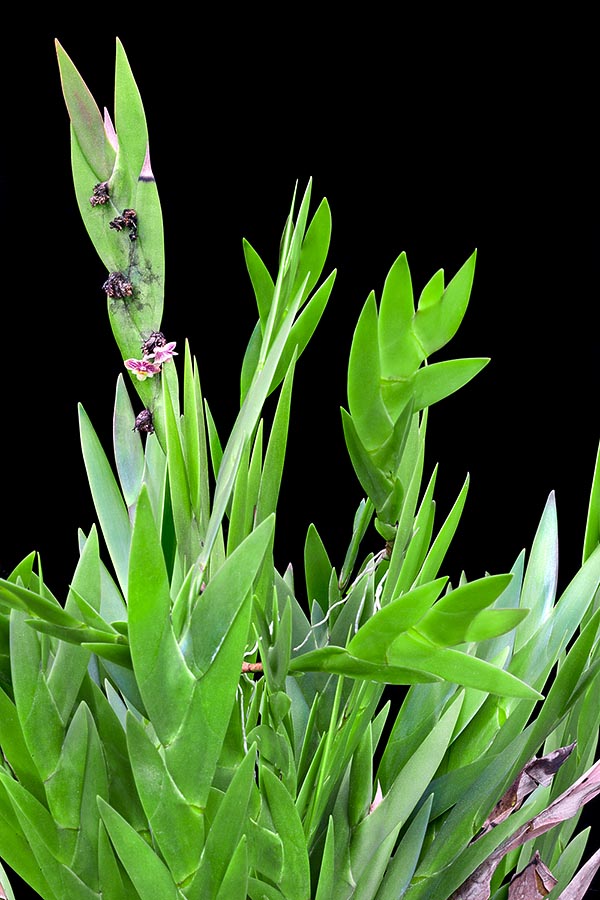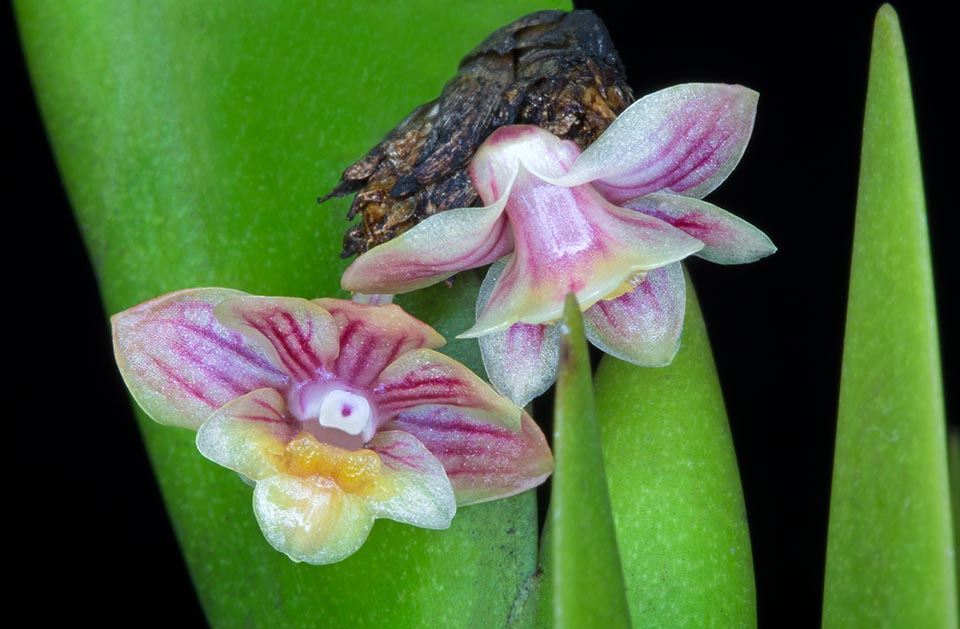Family : Orchidaceae

Text © Pietro Puccio

English translation by Mario Beltramini

Rarely cultivated miniature orchid, the Dendrobium kiauense is a Bornean epiphyte © Giuseppe Mazza
The name of the genus is the combination of the Greek substantives “δένδρον” (dendron) = tree and “βίος” (bios) = life, with reference to the numerous species of the genus that live on the trees; the specific Latin name refers to the origin place, the village, Kiau, at the foot of the mountain Kinabalu, where the type species has been found.
Common names: Kiau dendrobium (English).
The Dendrobium kiauense Ames & C.Schweinf. (1920) is an epiphytic species with close thin stems, 20-24 cm long, initially erect, then more or less hanging, and filiform roots, provided all over their length of alternate leaves, distichous, imbricate, equitant (single faced with lamina folded in two along the central vein), falcate-lanceolate with pointed apex, 4-8 cm long and about 0,6 cm broad, coriaceous, of intense green colour.
Sessile inflorescences bearing tiny flowers, of 1-1,5 cm of diameter, opening gradually, of pinkish white to cream yellow colour with purple veins.
It reproduces by seed, in vitro, and by division, with each section provided of at least 3-4 pseudobulbs.
Miniature orchid, rare in cultivation, requires intermediate temperatures, 18-30 °C, with lowest winter night values not under the 15 °C, high humidity, 70-85%, and constant ventilation.
Frequent waterings during the vegetative period, reduced in winter in order to give a slight period of rest, utilizing rain water, demineralized or by reverse osmosis.
It is preferably mounted on logs or rafts covered by sphagnum, alternatively can be cultivated in pots or baskets with a draining compost based on fragments of medium sliced bark and sphagnum.
The species is reported in the appendix II of the CITES (species whose trade is internationally ruled).

Coriaceous imbricate 4-8 cm leaves, folded laterally, with sessile inflorescences with tiny 1-1,5 cm flowers that open in succession © Giuseppe Mazza
→ For general notions about ORCHIDACEAE please click here.
